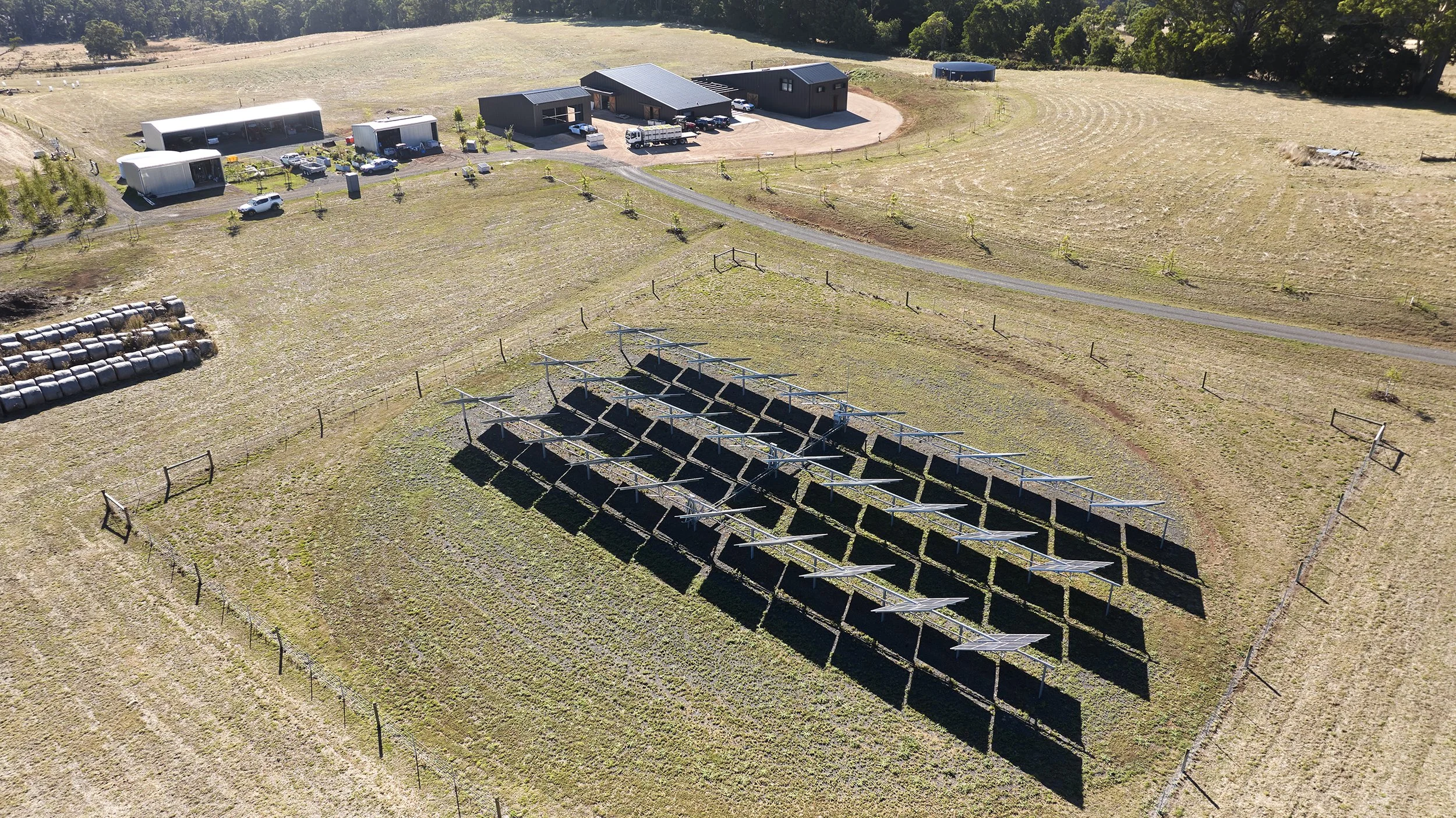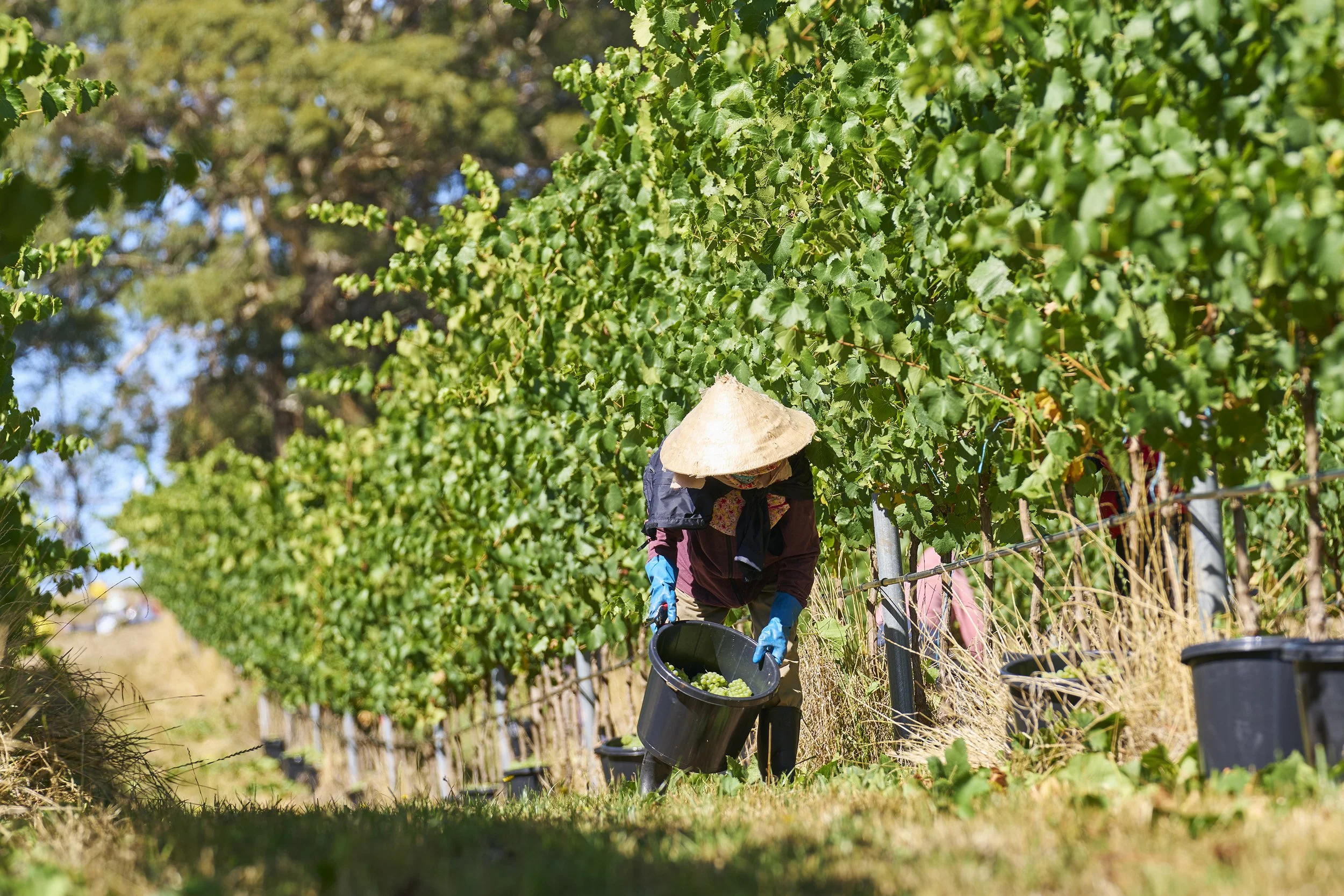
Shimora Wines is an international collaboration between husband and wife team Phillip Moraghan and Dr Rika Shimo based on their estate high up in Victoria’s Macedon Ranges. This unique partnership began in 2014 when Rika and Phillip travelled to Japan and crafted their first wine together, made from the white indigenous Koshu grape, at the highly regarded Katsunuma Jozo Winery in Yamanashi prefecture. This was a homecoming of sorts for Rika, who was born in Shiga before being raised in Auckland and Yokohama. It was also a coming together of cultures and techniques that has been a constant thread in the evolution of Shimora Wines.
Phillip Moraghan was one of the pioneers of the Macedon Ranges wine region as founder and winemaker at Curly Flat. Phillip came into the wine industry later in life while studying for an MBA in Switzerland. Having struck up a friendship with a winemaker in Burgundy, who owned vineyards in Mercurey, Phillip spent much of his spare time learning about vines and wine which led to his career change. He planted his first Macedon Ranges vineyard in 1991 and, with the help of a number of consultants, the first wines were produced in 1998.
Curly Flat went on to become one of the leading wineries in Macedon Ranges. Phillip’s favourite part of his role has always been spending time in vineyards and thinking about wine from the vine’s point of view and how to get the best out of each plant and terroir. For this reason, he stopped using herbicides and insecticides in the early days of Curly Flat to improve the quality of the soil and also used natural fertilisers, such as fish emulsion and seaweed mixtures, before it became fashionable.
“We are what we eat. If we keep on consuming foods with lots of preservatives and additives, it would be harmful to our health. I am sure it is the same for the vines.”
This vineyard-first philosophy, to grow rather than make great wine, translates into the winery by harvesting the best possible fruit at the right time with a focus on acidity and flavour rather than sugar ripeness. Then nurturing the strength of that fruit to produce the best wine possible from the vintage.
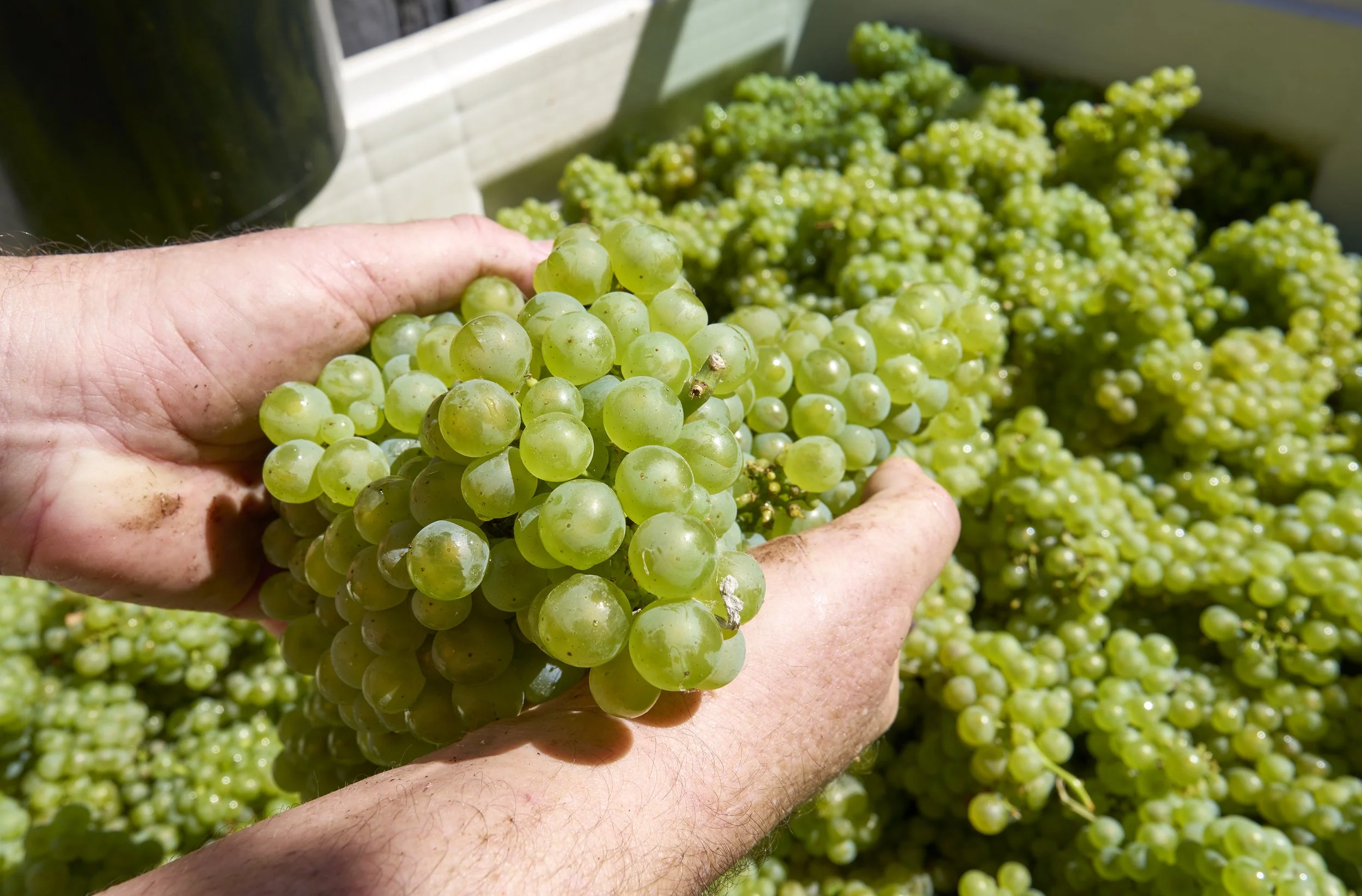
With these guiding principles, Curly Flat achieved remarkable success in a short period of time winning medals, trophies and significant support from critics both in Australia and around the world. Still to this day, Curly Flat’s “The Curly Pinot Noir 2012” is one of Jancis Robinson’s highest ever scoring Australian Pinot Noirs.
Phillip’s wife and partner Dr Rika Shimo was also another late convert to the wine industry but had always been interested in wine thanks to the enthusiasm of her mother. After moving to Australia, where she gained a PhD in linguistics before becoming a lecturer in Translation and Interpreting, Rika had coincidentally surrounded herself with wine enthusiasts which spurred her own interest and led her to take up studies both at the Wine & Spirit Education Trust and, more recently, at La Trobe University where she completed a degree in viticulture & winemaking. It was Kenichi Ohashi MW, Phillip’s friend, that persuaded Rika to do more studies in vineyard management and winemaking rather than focus purely on wine appreciation. Rika and Phillip are partners in Shimora wines, sharing the workload and key decisions across both winemaking and viticulture bringing their own unique international perspectives, experience and viewpoints.
There is an interesting third party involved in Shimora Wines, artist in residence Shumei Kobayashi, who has helped to design the labels for Shimora. Shumei specializes in Tsutsugaki art, which is a form of creating artwork with textiles, using piping bags to spread rice paste to create the intended design, before using pigment to dye the material. This is often repeated several times before the final artwork is finished. Shumei has been friends with Rika since she worked as an interpreter at a textile art workshop organised by the Japan Foundation in Melbourne. In Japan, Shumei often escapes into the depth of the mountains to cleanse himself from the hustle and bustle of modern society and become one with nature.
That is why his art work is clean and pure, which is reflected in the Shimora wines label design.
Shimora Wines officially launched in 2017 with the name a combination/portmanteau of the Shimo and Moraghan surnames. The first wines to be released were Koshus from the Yamanashi Prefecture while the inaugural vintage from their Little Hampton vineyard will be released late in 2025.
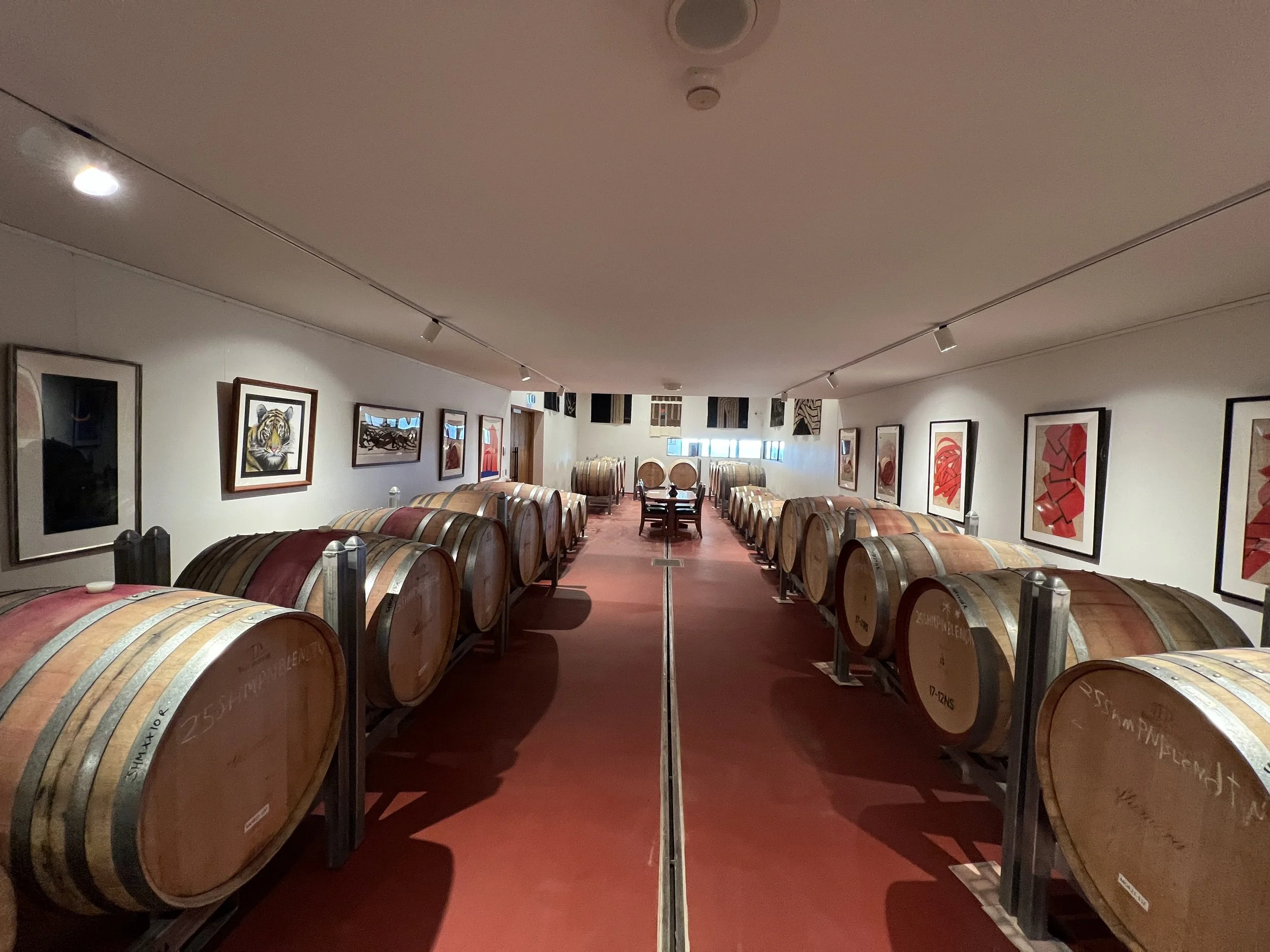
Phillip’s early interest in winemaking and viticulture grew from his time in Burgundy which built a passion for Chardonnay and Pinot Noir.
After returning from Switzerland and commencing viticulture and winemaking studies, he researched a number of regions and chose Macedon Ranges, an hour north of Melbourne, for its prime terroir to craft ultra-fine Australian Chardonnay and Pinot Noir that could compare favourably with the great wines of Burgundy. Macedon Ranges, with its cool continental climate, has the capacity to produce grapes with high natural acidity, in addition to full and intense varietal flavours from a long hang time and is well positioned for future climate change.
Phillip’s early hunch and site choice in the Macedon Ranges for Curly Flat proved to be an inspired move and, with other local trailblazers, helped to put Macedon Ranges firmly on the radar for fine wine consumers. In recent years, experience combined with a changing climate has opened up new opportunities in the cooler parts of Macedon Ranges where it was unthinkable that vines would be planted until very recently. Planting vineyards at higher altitudes, where there is greater protection from warm weather systems that can hit the region in the peak of Summer from the north and west, provides additional advantages for retaining varietal typicity in even the hottest years.
Rika and Phillip were keen to explore these new terroirs, particularly for Chardonnay and Pinot Noir, in their continuing quest to craft wines equal to the best Australian examples for these varietals.
After searching for a site for over a year, and looking at more than one hundred properties, they settled on a small location on Rothes Road, 7 kilometres east from the small town of Trentham at an altitude of 760 metres. The site had been used to graze sheep, and also to cultivate a small area for potatoes, but the land had not been heavily worked. The condition of the soil was excellent and already contained a considerable amount of organic matter, although retaining soil heath is a constant process. A considerable amount of lime and gypsum together with cover crops were ploughed into the soils as well as various mineral additions. The soil is regularly monitored through standard soil testing combined with cane and leaf petiole analysis. The result of the natural state of the land and our additions are well structured rich and vibrant soils with an impressive population of energetic earthworms and beneficial micro organisms.
One aspect of climate change is greater extremities in both hot and cold weather, leading to increased frost risk in winter and spring. Little Hampton is still quite marginal so the particular site was chosen due to its low frost risk. In addition to the slopes which release cold air to the lower parts of the property, the forest and the trees are also a heat sink, reducing the potential impact of cold air and minimising frost. The vineyard enjoys 1,085 Heat Degree Days which aligns it closely with Burgundy and season rainfall of a little under 1,000 mm (2024). The vineyard is 4 hectares in size, with a total of approximately 17,000 vines, made up of 30% Chardonnay and 70% Pinot Noir, and takes advantage of a sloping northerly aspect to maximise sun exposure. All work in the vineyard, including picking, is done by hand.
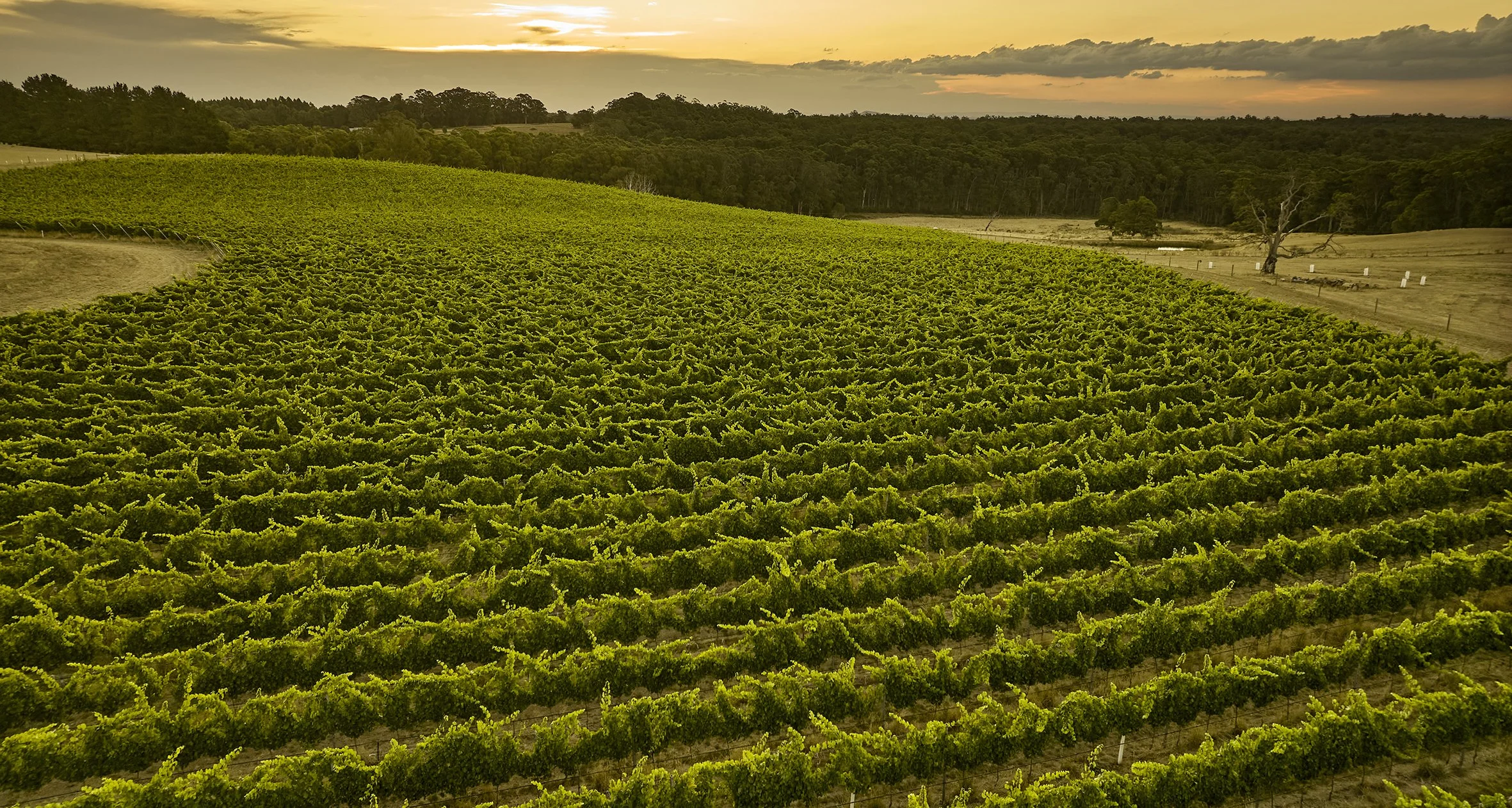
“Unless we take care of the environment, there will be nothing left for us to live for”.
A core aim for Shimora Wines is long term environmental sustainability, not only on the estate but also more broadly by pursuing decisions in the winery and vineyard that lessen the impact on the total environment.
Shimora Wines operates completely off grid with all power generated though sun tracking solar panels, stored in batteries on site. In addition, the winery, barrel room and accommodation have all been designed to make the best use of the natural environment to minimise the use of heating and cooling year round, both through design and significant insulation.
The cutting-edge German built Lipco recovery spray unit enables any vineyard sprays that have not adhered to the leaves to be collected back into the unit to be reused, decreasing overall chemical use, as well as greatly reducing the amount of chemicals being released into the air and on to the ground as waste. It also enables multiple rows to be sprayed at once, halving the distance travelled in the vineyard and thus reducing soil compaction.
